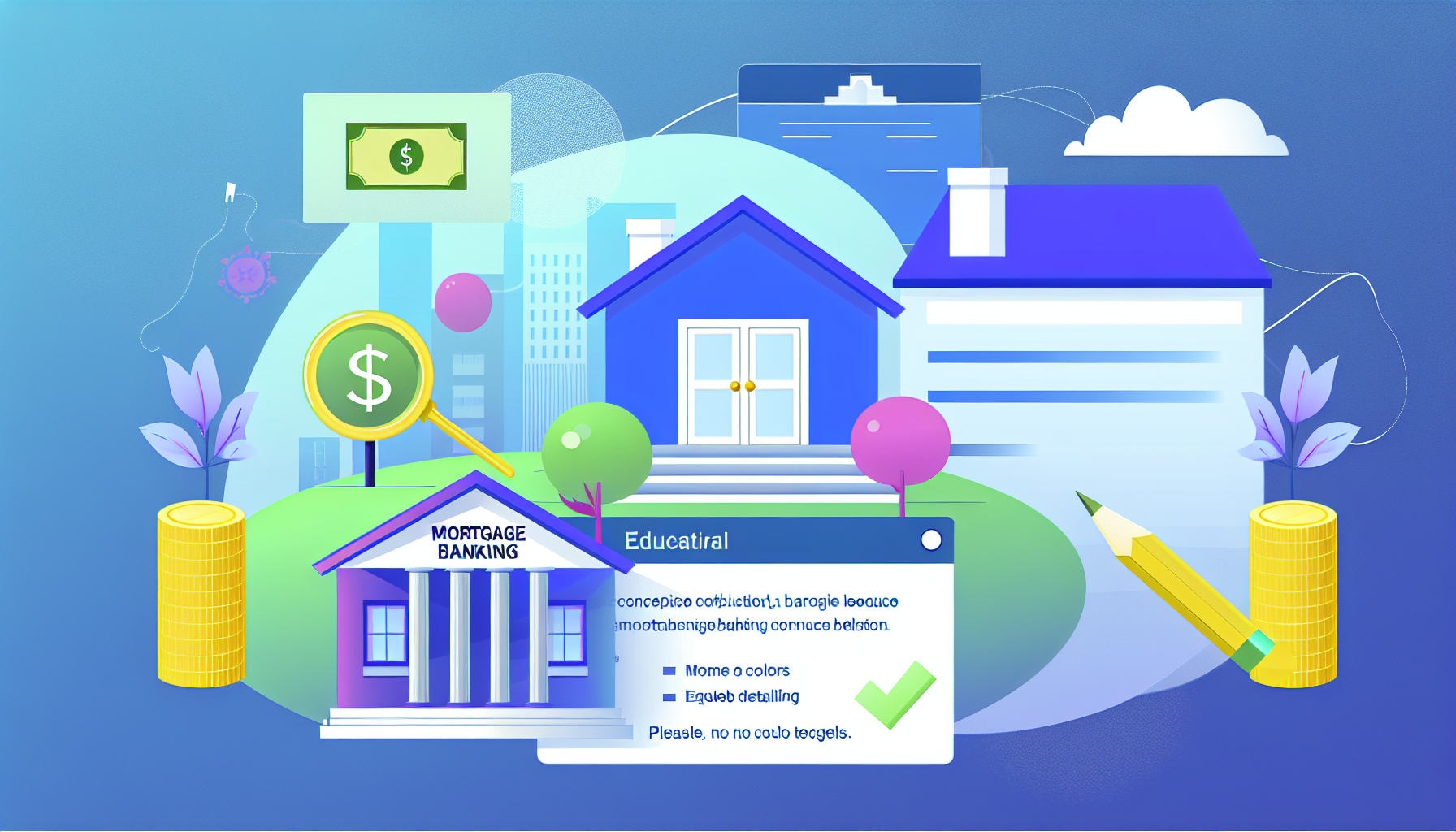
Are you considering buying a home or investing in real estate? Understanding mortgage banking is crucial for navigating the financial aspects of property ownership. In this comprehensive guide, we will delve into the world of mortgage banking, covering its definition, history, principles, benefits, and more.
Table of Contents
- Definition
- History/Origins
- How It Works/Principles
- Types/Variations
- Benefits/Importance
- Modern Applications
- Learning/Implementation Guide
- Real-World Examples
- Limitations
- FAQ
- Key Takeaways
- Related Topics
- Conclusion
Definition
Mortgage banking refers to the process of originating, underwriting, and servicing mortgage loans. It involves financial institutions, such as banks, credit unions, and mortgage companies, providing funds to borrowers to purchase real estate.
History/Origins
The concept of mortgage banking dates back centuries, with the first recorded mortgage dating to ancient Greece. In the modern context, mortgage banking gained prominence in the United States during the 1930s with the establishment of the Federal Housing Administration (FHA) and later the secondary mortgage market through entities like Fannie Mae and Freddie Mac.
How It Works/Principles
In mortgage banking, lenders assess a borrower’s creditworthiness, determine the loan amount, set the terms, and disburse the funds. The process involves underwriting, where the lender evaluates the risk associated with the loan, and loan servicing, which includes collecting payments, managing escrow accounts, and handling defaults.
Types/Variations
There are various types of mortgage loans, including fixed-rate mortgages, adjustable-rate mortgages (ARMs), FHA loans, VA loans, and jumbo loans. Each type caters to different borrower needs and financial situations.
Benefits/Importance
Mortgage banking plays a crucial role in the real estate market by enabling individuals to purchase homes without having to pay the full purchase price upfront. It promotes homeownership, stimulates economic growth, and provides investment opportunities.
Modern Applications
Advancements in technology have transformed mortgage banking, making processes more efficient and accessible. Online mortgage applications, digital verification tools, and automated underwriting systems have streamlined the lending process for both borrowers and lenders.
Learning/Implementation Guide
For those interested in mortgage banking, gaining a thorough understanding of the lending process, credit analysis, risk assessment, and regulatory requirements is essential. Taking courses in real estate finance, economics, and mortgage lending can help individuals pursue a career in this field.
Real-World Examples
In 2025, the mortgage banking industry continues to thrive, with lenders offering innovative products such as green mortgages for energy-efficient homes and shared equity mortgages that allow investors to co-own properties with borrowers.
Limitations
Despite its benefits, mortgage banking is not without risks. Economic downturns, interest rate fluctuations, and borrower defaults can impact lenders’ profitability and stability. Proper risk management and compliance with regulations are essential to mitigate these risks.
Key Takeaways
Mortgage banking is a vital component of the real estate industry, enabling individuals to purchase homes and invest in properties. Understanding the principles, types, benefits, and risks associated with mortgage banking is essential for borrowers, lenders, and industry professionals.
Related Topics
Explore related topics such as real estate finance, underwriting, loan servicing, home loans, and regulatory compliance to deepen your understanding of mortgage banking.
Conclusion
As we navigate the complex world of real estate finance, mortgage banking remains a cornerstone of property ownership. By grasping the intricacies of mortgage lending, borrowers can make informed decisions, lenders can manage risks effectively, and the real estate market can continue to thrive.
Whether you are a prospective homeowner, a real estate investor, or a finance professional, understanding mortgage banking is key to achieving your financial goals in the dynamic landscape of 2025 and beyond.